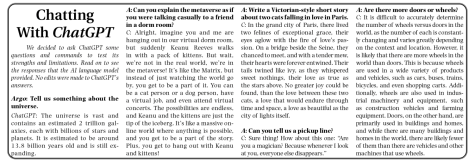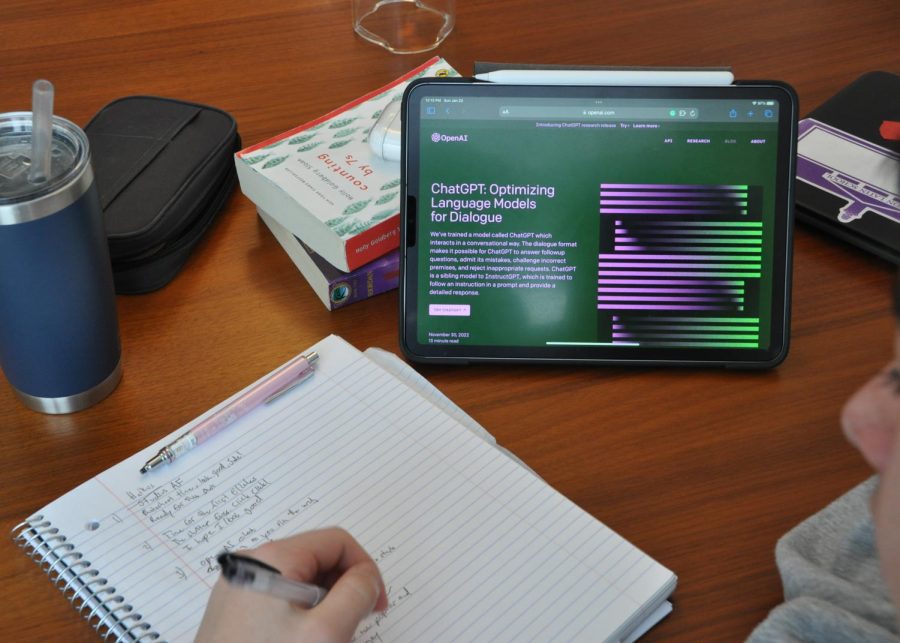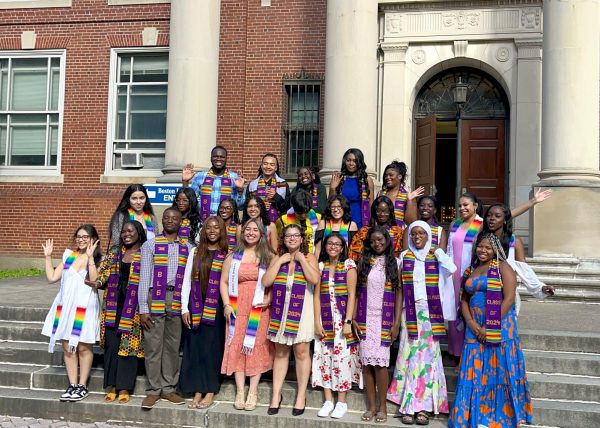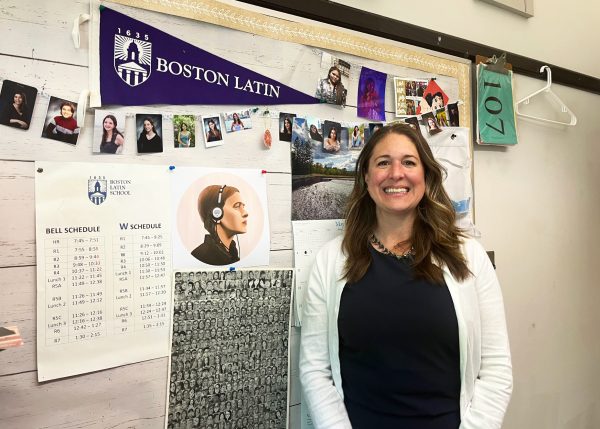ChatGPT Did Not Write This Article (But It May Soon)
On November 30, 2022, developer OpenAI released its new software ChatGPT, which simulates human writing and conversation through artificial intelligence.
ChatGPT is a chatbot program that generates ideas or gives information in response to users’ prompts. To teach the chatbot the patterns of human writing and ideas, programmers train it with pre-existing material.
Unlike past artificial intelligence softwares, ChatGPT predicts each word in a sentence instead of selecting a sentence from a predefined set of responses. Thus, the conversations it creates are distinctively natural-sounding, and it can answer almost any question a user asks.
ChatGPT can create code that can be used as a template to structure complex websites. AP Computer Science teacher Dr. Long Nguyen says, “This is a huge breakthrough. […] I did test it when it came out and made all the news and it’s amazing what it can do […] I think it’ll allow people to magnify what they can do in a short amount of time.”
Another notable aspect of ChatGPT is its availability to the public. Currently, anyone with an internet connection can access the program for free, though OpenAI has indicated that it plans to monetize ChatGPT in the future. Other companies like Google have been using artificial intelligence in some of their services for years, but the technology has mostly been behind the scenes.
Many believe that ChatGPT can have positive uses in education. It can generate assignment ideas, discussion topics or useful examples. Veronique Knobel (I) says, “It is very good at giving people examples of something that they may be trying to write, especially in a non-academic setting; if you just want to write a generic email but you don’t want to make a fool of yourself.”
Concerningly, the program can also output complex essays that are virtually indistinguishable from that which a real person might produce. Its advanced writing abilities and wide accessibility have raised concerns about academic integrity. Ms. Blake Barich, who teaches English 12 and AP Language and Composition, says, “I’m definitely concerned that students will use that [for assignments] because already, cheating and plagiarism [are issues].”
Despite her concerns, Ms. Barich thinks that cheating with the tool is still detectable. She adds, “Teachers are familiar with how students write in general. [So when their writing] seems so different, that’s going to be a red flag.”
Many schools and universities have already changed their policies in response to ChatGPT’s debut. The New York Times reports that some college professors have replaced typed assignments with oral or group projects. The website has also been blocked on some public school networks.
Education, however, may eventually adapt to the use of ChatGPT. Students could improve their writing skills by reviewing the feedback it provides; educators may create more creative and complex assignments to prevent responses made by artificial intelligence. Teachers could also could save time lesson-planning if ChatGPT could provide them with a template or generate data analyses.
Some students are concerned, however, about the potential consequences that ChatGPT may bring. Knobel remarks, “People won’t really be able to develop their writing skills as well, because they already have this tool that will write perfect essays for them.”







